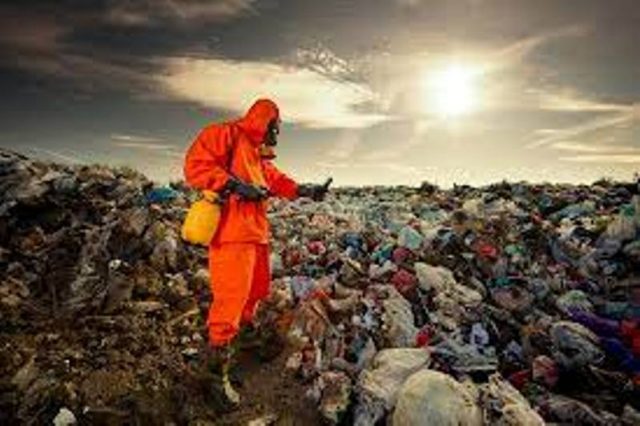…GPAP annual impact report illustrates the importance of turning the tide on plastic pollution through collaboration and public-private partnership
…Despite progress, ocean plastic flows are expected to triple by 2040
…Sustained collaborative action could stem the tide by more than 80%
THUR 16 SEPT, 2021-theGBJournal- The Global Plastic Action Partnership (GPAP) released its second annual impact report, which highlights strides made over the last two years in building coalitions, extending global reach, and helping nations make a difference by confronting plastic waste.
“Plastic pollution was already a global emergency, and with the pandemic-induced explosion in packaged goods, as well as increased of use of single-use plastics through masks, gloves and other PPE, it has become a global disaster,” said Kristin Hughes, GPAP Director and a member of the WEF Executive Committee. “The good news is that our GPAP 2021 impact report proves that what we’re doing works, and if we act together now, we can halt the plastic pollution crisis in its tracks.”
On the heels of a challenging year dominated by the COVID pandemic, GPAP and its partner governments have met critical milestones, including:
Ghana, Nigeria, Indonesia, and Viet Nam came together as early adopters in the Forum’s Global Plastic Action Partnership
Viet Nam pledged to reduce marine plastics by 75% by 2030
Ghana committed to a 100% circular economy for plastics
Indonesia’s action and investment roadmap is poised to prevent 16 million tonnes of plastic leakage into the ocean; Create 150,000 jobs; and Generate $10 billion in annual revenues.
Taking collaborative action to tackle plastic pollution
“The Forum’s platform approach aligns various stakeholders from public and private organisations, works toward common objectives, and creates outcomes far greater than could be achieved by any nation or organization acting alone,” said Hughes. “It’s a great honor to lead the GPAP platform, and to see what we can accomplish through the convening power and influence that the Forum brings to bear. Our second annual report shows what can be done and, now more than ever, what needs to be done.”
In the face of global disruption and re-set, GPAP’s initiatives are performing and moving the needle on climate change by promoting a circular economy for plastics. The report outlines key progress in the following impact areas:
Transforming behaviour – GPAP amplified initiatives that help citizens and consumers form more sustainable relationships with plastics
Raised awareness of the COVID-19 impact on the plastic ecosystem through public town hall communications
14 solutions to address plastic waste and pollution were developed in collaboration between government, business, and media influencers on the GPAP platform
116 recycling points were identified in Ghana’s capital city of Accra, up from just 10 before the National Plastic Action Partnership was initiated.
Unlocking financing – GPAP engaged stakeholders to promote investments that tackle plastic waste and pollution
$196.7 million was committed by GPAP members to National Plastic Action Partnership countries
13 financial institutions engage in GPAP finance events and task forces
140,000 people will be reached through financing committed by GPAP partner, the Alliance to End Plastic Waste in Indonesia
GPAP collaborated with HRH The Prince of Wales Sustainable Markets Initiative to host a Roundtable on Financing Plastic Action in Emerging Markets to unlock opportunities for investing in plastic action.
Informing policy – Supporting the collaboration of policy makers with stakeholders to confront plastic pollution, GPAP has established National Plastic Action Partnerships (NPAPs) in Indonesia, Ghana, Viet Nam, and Nigeria
57% of GPAP’s members have been involved in government policy consultations; 53% report being involved in corporate policy decisions
GPAP’s National Action Roadmaps offer a suite of solutions for policy makers to consider when developing plans to address plastic pollution.
Boosting innovation – GPAP created opportunities for high-potential innovators to access partners who are helping to scale their ideas
Established a platform for connecting innovators, experts, and investors through the Global Plastic Innovation Network in partnership with UpLink where 70+ solutions are now showcased
Crowdsourced plastic waste solutions in Indonesia and produced videos of innovators engaged in the plastic space, which reached 1.75 million views on social media
Harmonizing metrics – GPAP has facilitated evidence-based, country-level analysis and action planning to create consistent, best-practice frameworks for measuring plastic waste reduction
Forum research determined that almost 50% of ocean waste can be prevented by reusing only 10% of plastic products (see The Future of Reusable Consumption Models Report)
Baseline assessments and scenario analyses were completed with Indonesia, Ghana, and Viet Nam to give governments clear evidence and inform action roadmaps
Promoting inclusivity – GPAP maintained its commitment to ensure that diverse voices and inclusive perspectives are integrated across all partnerships
Established gender-responsive principles for plastic action through GPAP’s Guide to Ensure Gender-Responsive Action in Eliminating Plastic Pollution
Conducted a ground-breaking Gender Analysis of the Plastics Sector in Ghana
Brought together key youth leaders through the inaugural Plastic Action Champions cohort
Twitter-@theGBJournal|Facebook-The Government and Business Journal|email: govandbusinessj@gmail.com










